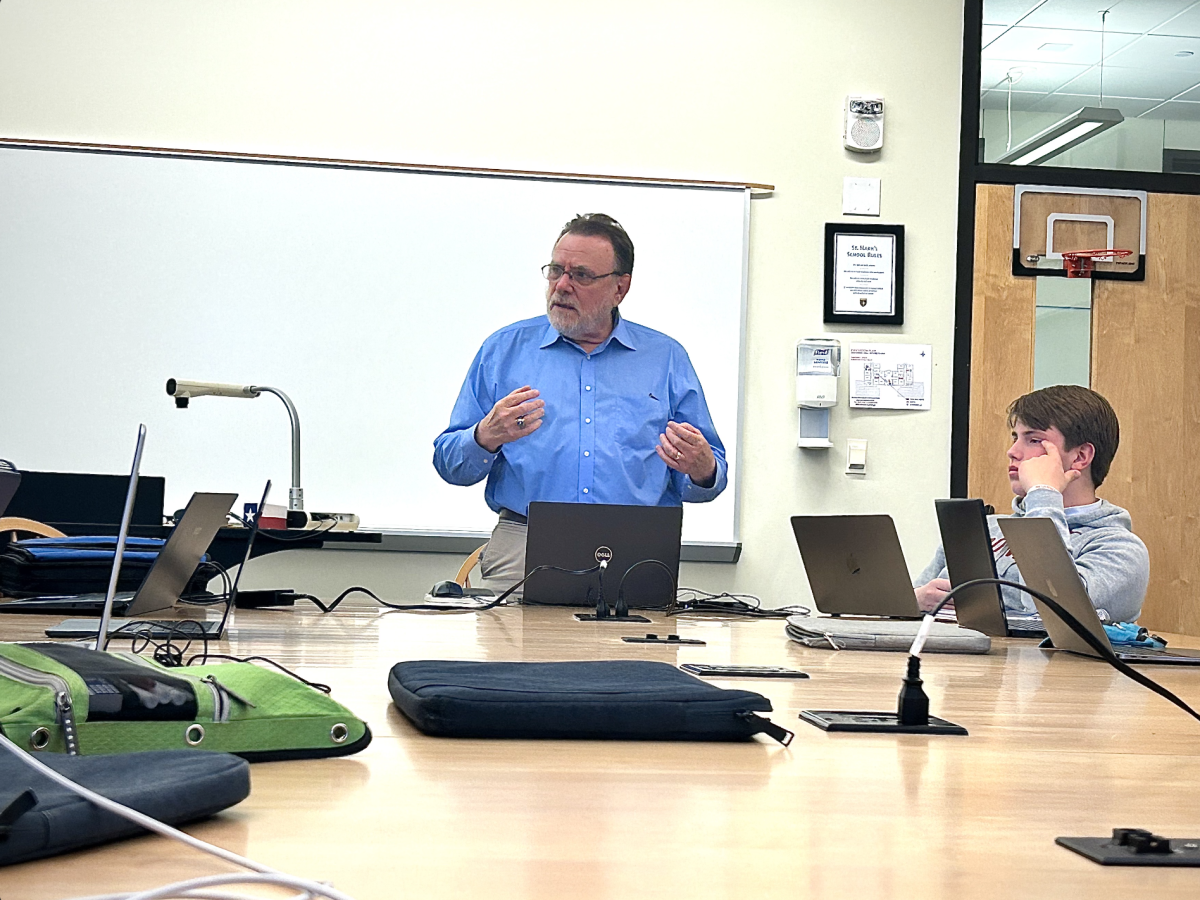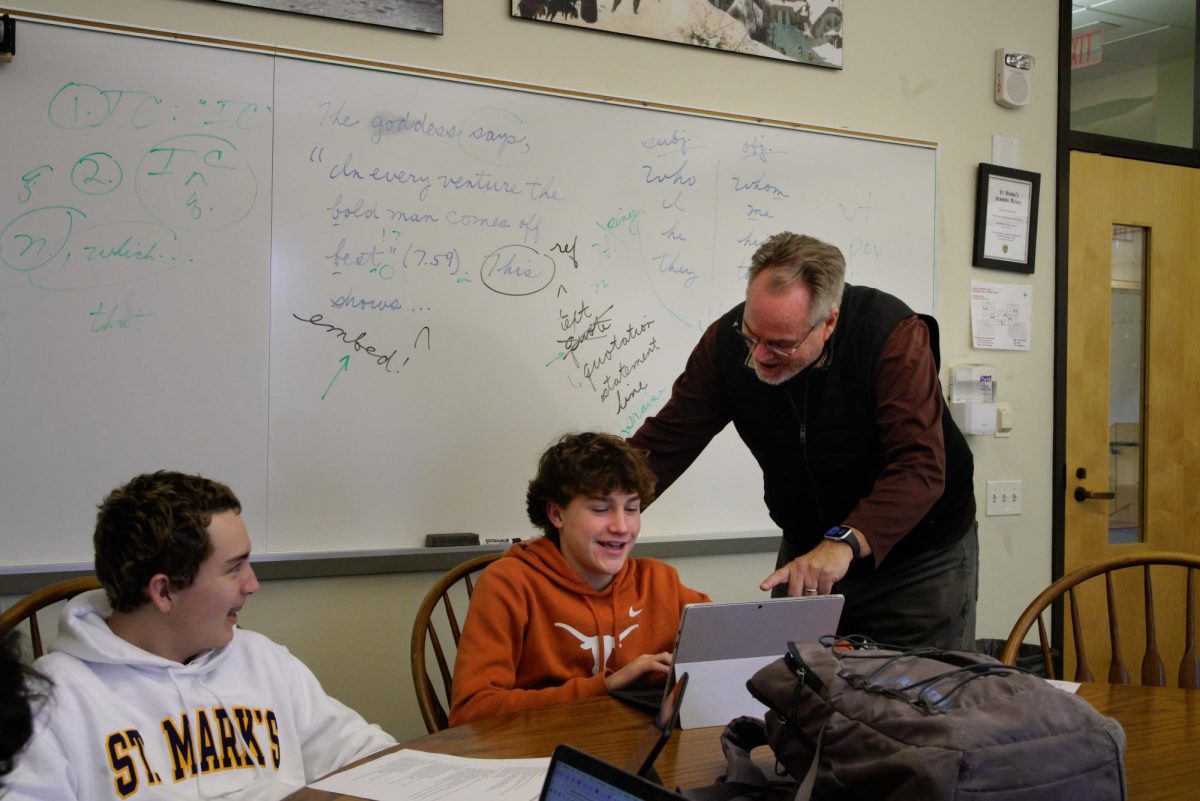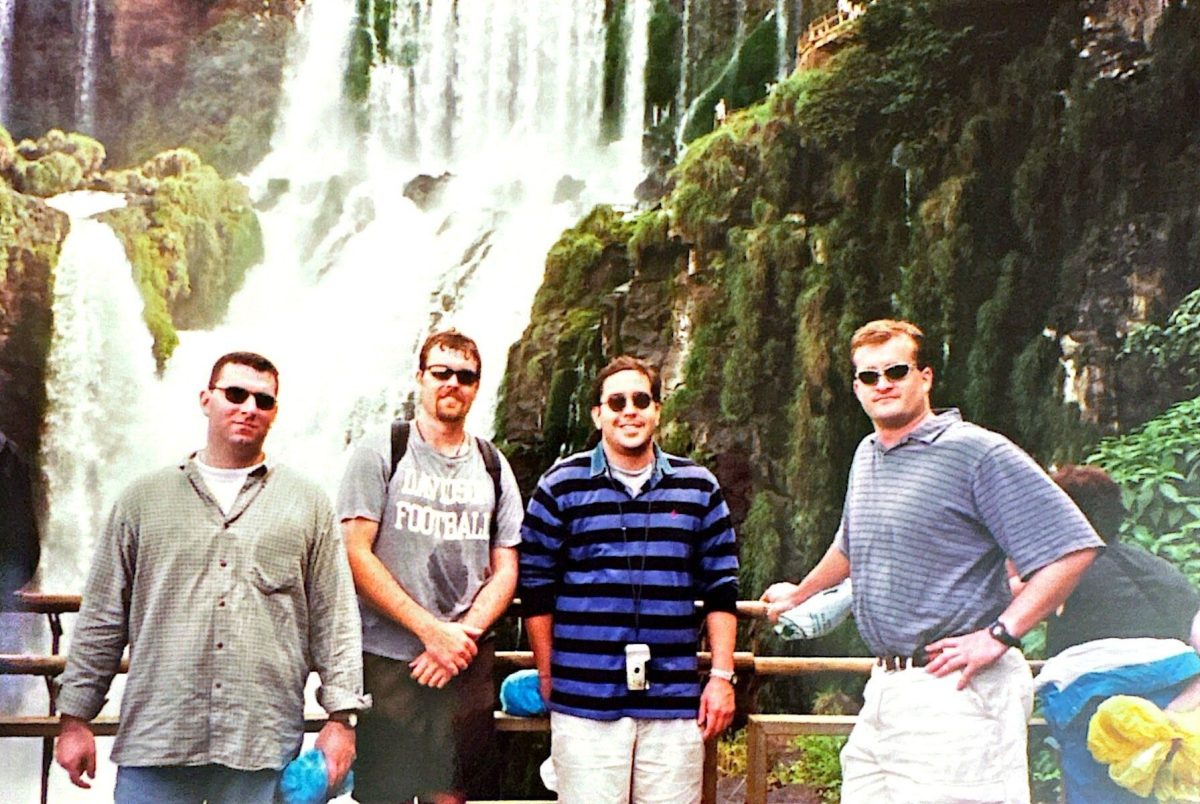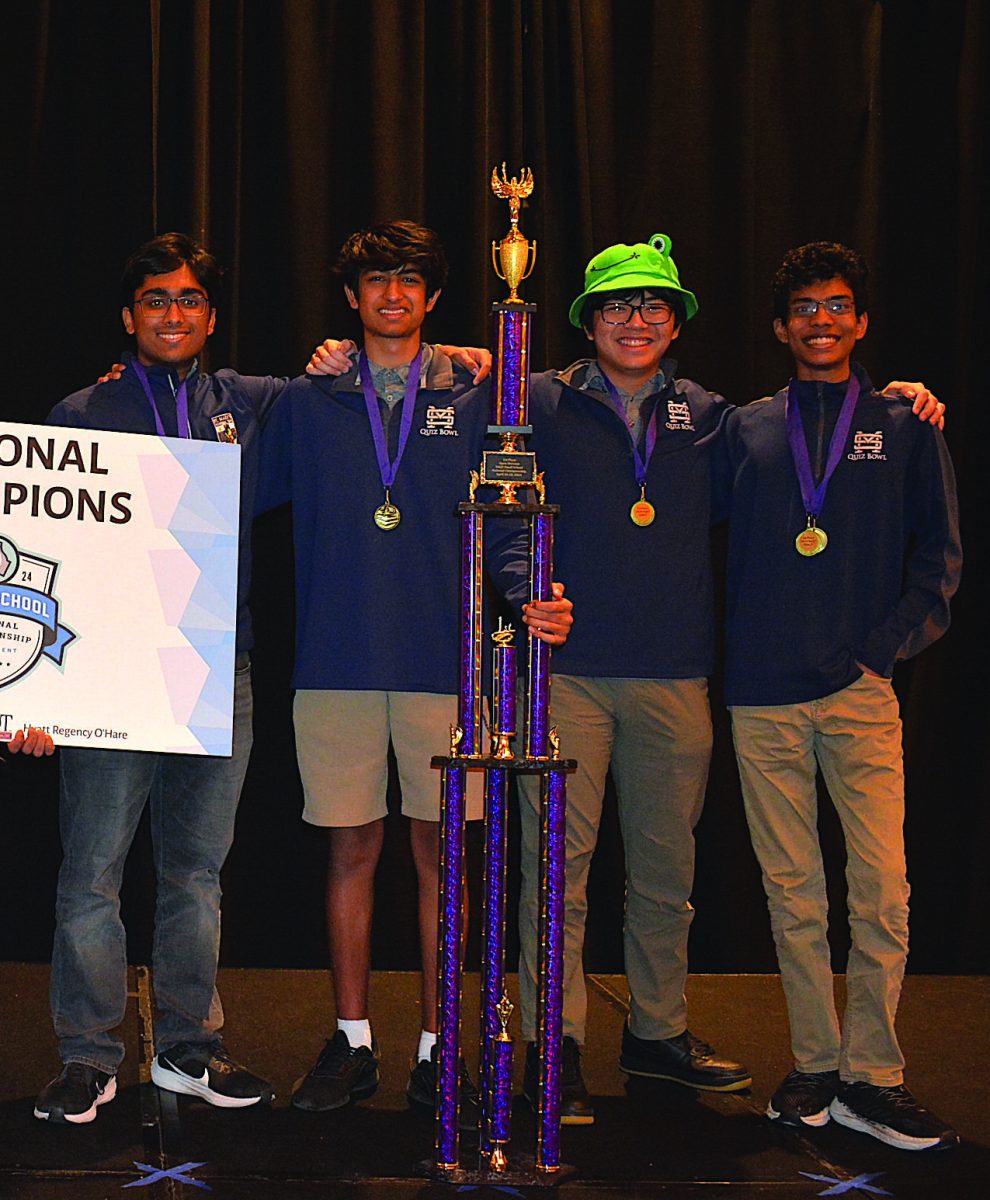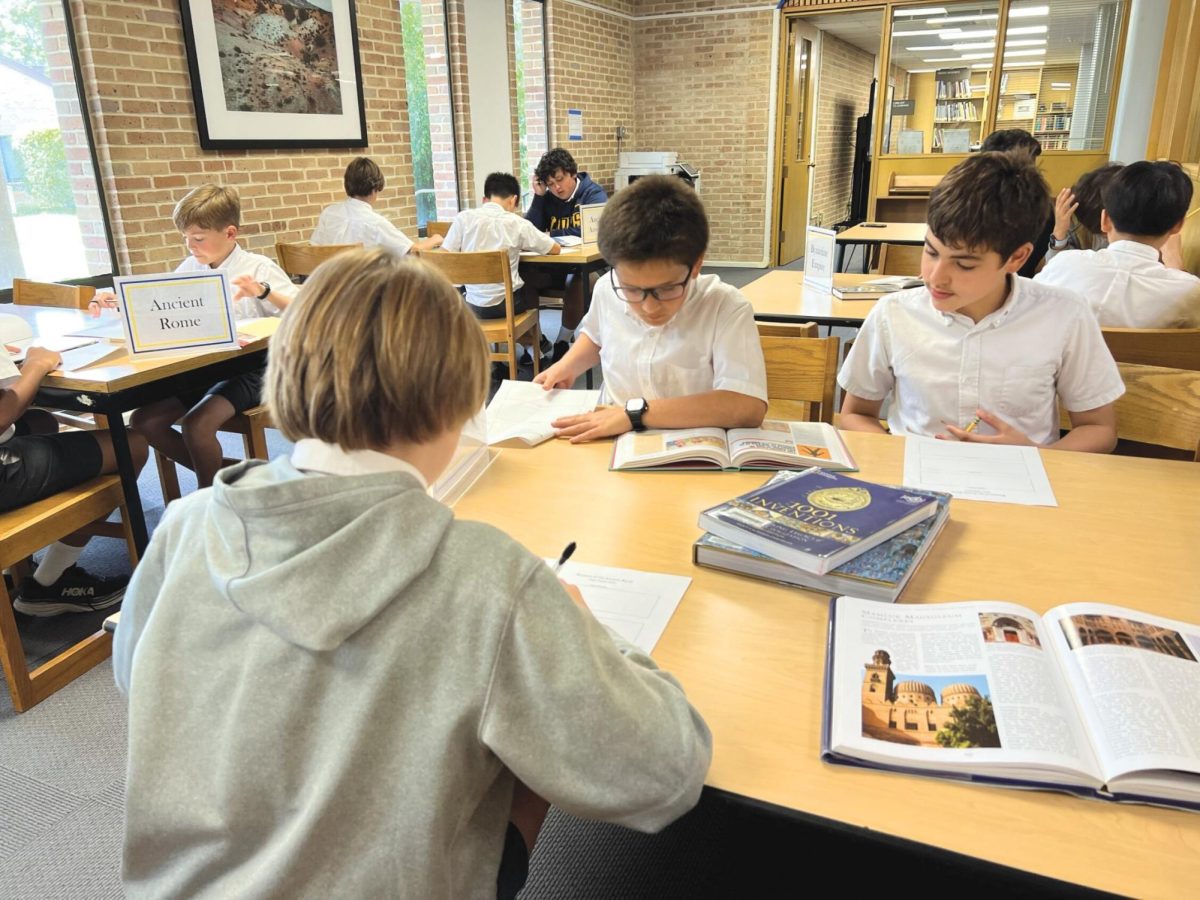Across the United States, teachers must design a curriculum that meets many standards, from ensuring that students score well on standardized tests and ever-changing school and departmental requirements.
This challenge only increases with the addition of Advanced Placement courses, which are expected to cover far more material than on-level courses and prepare students for the rigorous AP tests. At the school, teachers are experienced and have thoroughly prepared curriculums with unchanging core concepts and room for flexibility for modern events.
Modern World and AP European World Instructor Bruce Westrate teaches his lecture-heavy class through a series of PowerPoints but always keeps an eye out for current events to add to his curriculum.
“I read constantly,” Westrate said. “I am always trying to stay current with changes in the historiography of particular subjects and informing myself and bringing new material in.”
Through his lectures, Westrate provides his students with a narrative for history, serving as “the skeleton in the human body,” and then adds analysis and class discussions to serve as “the flesh and bones.”
“History, after all, is storytelling, and there are two components to it,” Westrate said. “The way teachers teach is through the narrative of the story and then the analysis of history, which is the cause and effect of historical events. The trouble is, teachers can’t have one without the other. I like to provide a good narrative with some analysis as I present my lecture and have discussions in my class all the time.”
For his AP class, Westrate teacheswith similar methods to his Modern World courses.
“My teaching of the [AP European World] class is different from other AP classes because I don’t teach the test,” Westrate said. “That’s partly because I have the luxury of teaching mostly seniors who know how AP tests work already. Our class just concentrates on the content, and that takes care of itself in terms of their ability to take the tests, so I am very lucky in that respect.”
While some departments may have more strict guidelines, the history department is more flexible – allowing teachers to focus on their specialties rather than having every teacher repeat the same information. This flexibility provides students with different opportunities to learn different aspects of history throughout their time in upper school. For example, an Upper Schooler may receive a more religious-based Foundations of World Societies class and a more governmental-focused Modern World class during their sophomore year, providing a well-rounded history base.
“I think the freedom that the department gives us in history works best because students get exposed to many different styles,” Westrate said.
For the science department, however, curriculum requirements are slightly different. Teachers consult with those teaching the same course as them to ensure that all students learn the same content.
“You start with what you want your students to know at the end of the course and then you build a course that gets them there,” Science Department Head Fletch Carron said.
AP Physics 1 and 2 Instructor Stephen Houpt teaches the AP Physics 1 exam, arguably the most challenging AP exam in the nation, so his strategies differ from Westrate’s.
“The AP Physics 1 exam is nationally the most difficult AP exam a student can take,” Houpt said. “The AP exam has been really, really conceptually based, and I do cover concepts extensively. I do a lot more number-based questions to help students prepare for the exam.”
Houpt has taught at St. Mark’s for 23 years, and his curriculum has evolved. With the advent of new technologies and an ever-updating AP curriculum, Houpt has had to change his course several times.
“I don’t pick up homework; I give homework quizzes instead,” Houpt said. “I give fewer tests for a number of reasons, mostly internet-based. The labs are also different, as they are a little more student-centered now. Also, I occasionally give group quizzes, but the majority are individual quizzes.”
Even though teachers need to ensure students learn an ample amount of information for the final and to prepare them for their classes next year, teachers still have control over both the content and their methods of instruction.
“Different teachers have different emphases and we all have different strengths and weaknesses, so it’s going to change from time to time, but I think that the freedom that they give us in the history department [to design curriculum] works best,” Westrate said.

